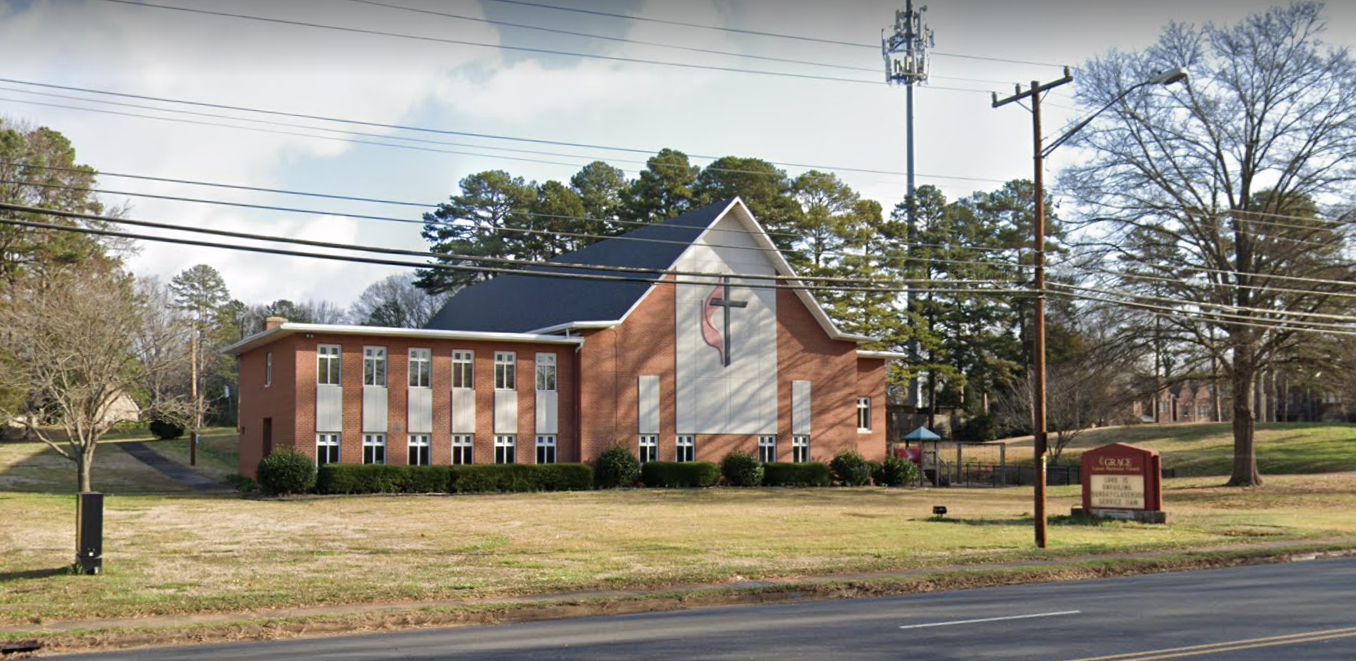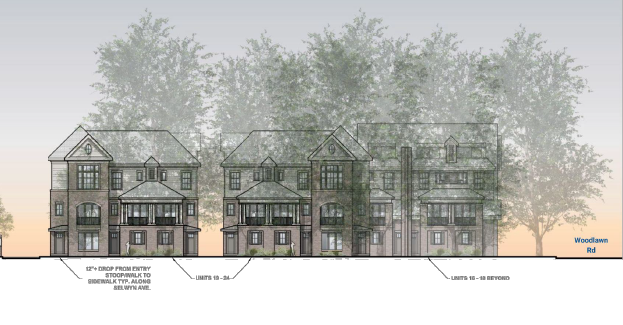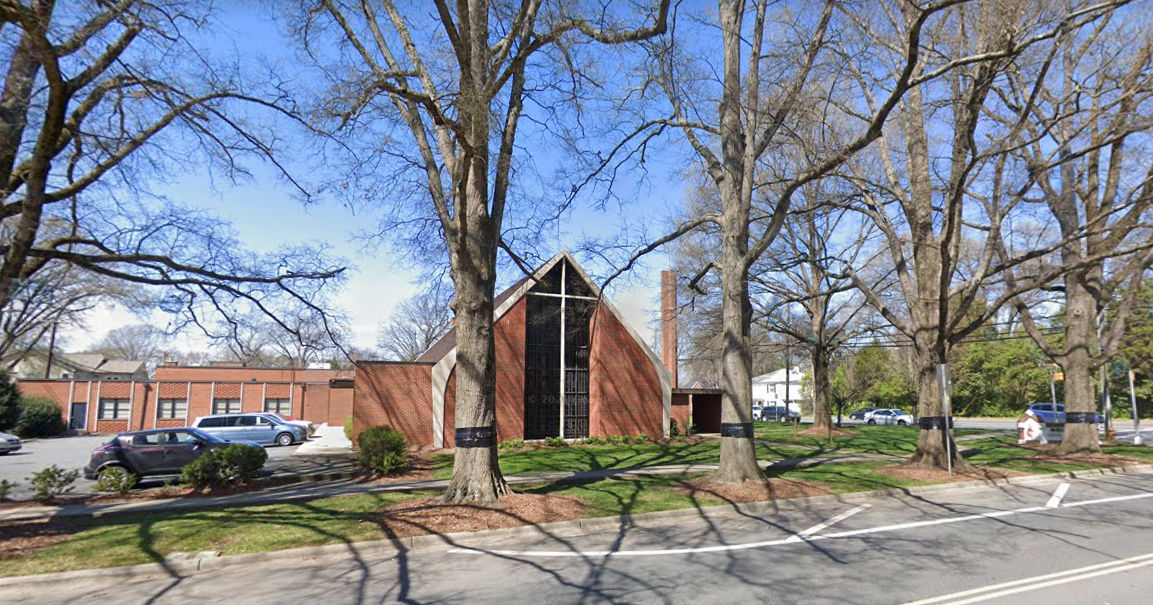
The newly named Woodlawn Community Fellowship represents a new model for what a faith community can look like at a time when mainline denominations are experiencing steady declines.
“We can’t hinge our ministry on people filling our pews every Sunday,” said Rev. Jonathan Coppedge-Henley. “We need to redefine the way people make their contact with Jesus. We’re not exactly sure what shape that is going to take. But it has to be a place where faith is put to work.”
The two congregations, Grace and Selwyn (formerly Mouzon), merged in February 2020 following years of declining membership and giving. Coppedge-Henley arrived over the summer as pastor of the combined church, which meets at the Grace campus on Woodlawn Road.
Creativity and collaboration
Eager to imagine a new future for the six-acre property, church leadership identified possibilities such as co-working spaces, a community-oriented coffee shop and venue for music and performing arts – three preferences expressed by residents in conversations over the past year.
A major step occurred Monday night when the City Council voted to rezone the vacant Selwyn property for 36 townhomes (shown below in rendering). The development, known as Selwyn Towns, will generate an income stream to support construction and future ministry endeavors at Woodlawn Community Fellowship.

Proceeds from the sale of townhomes will be invested with the Foundation, which also provided a low-interest loan to refinance existing debt from Selwyn UMC.
“This is an example of two churches exercising creativity and collaboration,” said Rev. Dan Pezet, superintendent of the Metro District of the Western North Carolina Conference.
“They took stock of their assets and discovered that they could leverage their property to build a future. This kind of creativity is going to be important for all churches to successfully navigate these challenging times.”
David Snipes, Foundation president, called it “not only an example of innovative ministry, but also an example of the United Methodist connection at its best.”
“Local church members, district leaders, Wesley Community Development and the Foundation worked together,” he said, “to create something new that will better suit the community’s needs.”
Church leaders drew inspiration from their experience in Seeds of Change, a series of workshops led by Wesley Community Development Corporation for churches to learn how to better use their properties for more effective ministry.
Wesley CDC is the official property manager of the Western North Carolina Conference of the United Methodist Church. Part of its mission is to help churches re-purpose and/or sell property with an eye toward ministry and stewardship.
Wesley CDC emphasizes the idea that churches can serve as anchor institutions of their communities. Oftentimes, however, the physical spaces are outdated and no longer suited to the needs of the users.
As Wesley CDC President Joel Gilland puts it: “We help your assets serve your mission and ministry better.”
An opportunity to ‘reach so many’
In the case of Woodlawn Community Fellowship, the asset is a highly visible location between Park Road Shopping Center and South Boulevard – in close proximity to young professionals in Madison Park and apartment dwellers along Scaleybark Road.
“I feel like there’s an opportunity in that corridor to reach so many people,” said Anna Castilow, who grew up at Selwyn UMC, then known as Mouzon. “We’ve got to find out what people need and will make them want to come to us. It’s a mission to figure it out and be able to sustain it.”
A new worship center would be built alongside stores and apartments. Church leaders see the potential for street-level small businesses to support local entrepreneurs and create a sense of vitality. Wesley will continue to lend real estate expertise to the discussions.
The re-imagined campus can be “a place where life happens not just on Sunday mornings,” says Heath Love, a member of the former Grace congregation.
“It’s hard to get the neighborhood to come into our church,” said Ros Harris, another Grace member. “With development that will be attractive, I think it will happen eventually.”
There are significant social needs in the community. The church wants to grow its relationship with Pinewood Elementary School, a CMS Title I school with 88 percent minority enrollment.
In previous years, adult immigrants came to Grace for English language courses. A twice-a-month Dinner Church initiative hosted meals for the homeless, elderly and unchurched. There was a food pantry and community yard sale.
Efforts like these can redefine what it means to be a church home.
“For so long, we evaluated the effectiveness of a church based on one hour a week,” Jonathan said. “(At Woodlawn) we’re going to lead with concern for others. That gives Jesus the freedom to be who Jesus is.”

The former Selwyn United Methodist Church campus is shown in the above photo.
Best wishes to a cherished colleague and friend
As she leaves the Foundation to move closer to family, Susan Cothern offers a word of thanks.
Board gives thanks for leadership, growth and fruitful ministry
There was a special tribute for outgoing board chair Anne Martin, whose steadying presence proved invaluable as the Foundation navigated post-pandemic recovery, disaffiliation and accompanying challenges.
Disciplined approach protects, grows your investment dollars
We are committed to maintaining discipline, balance, and, most importantly, a long-term focus in the decisions we make on your behalf.